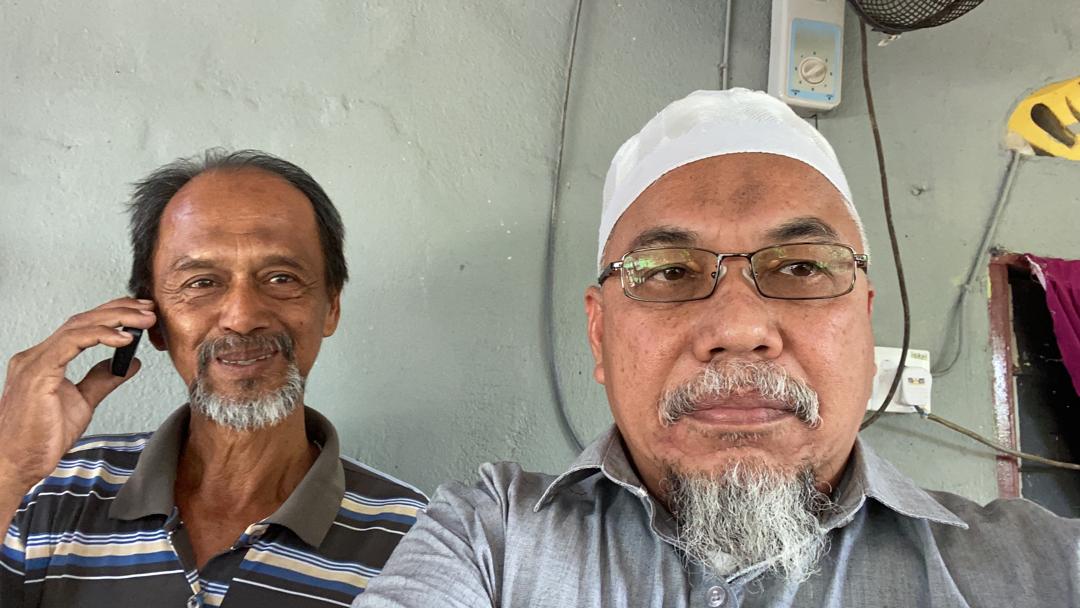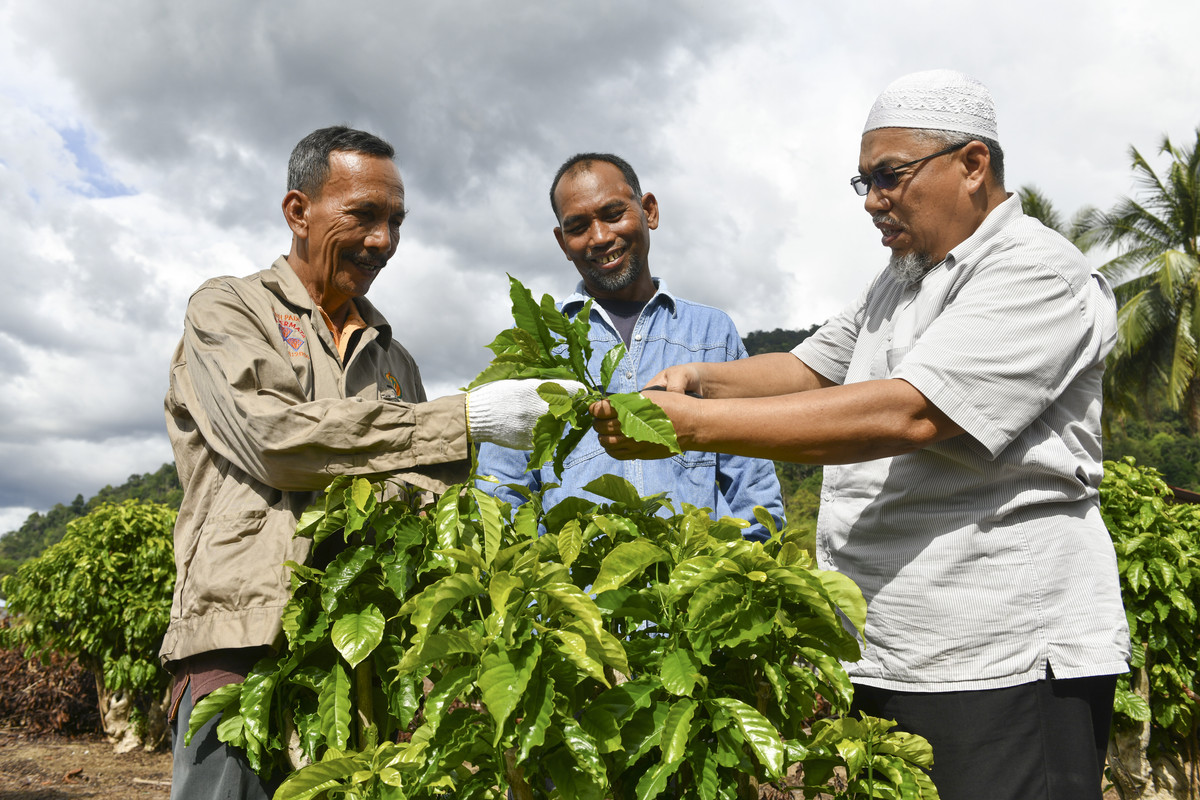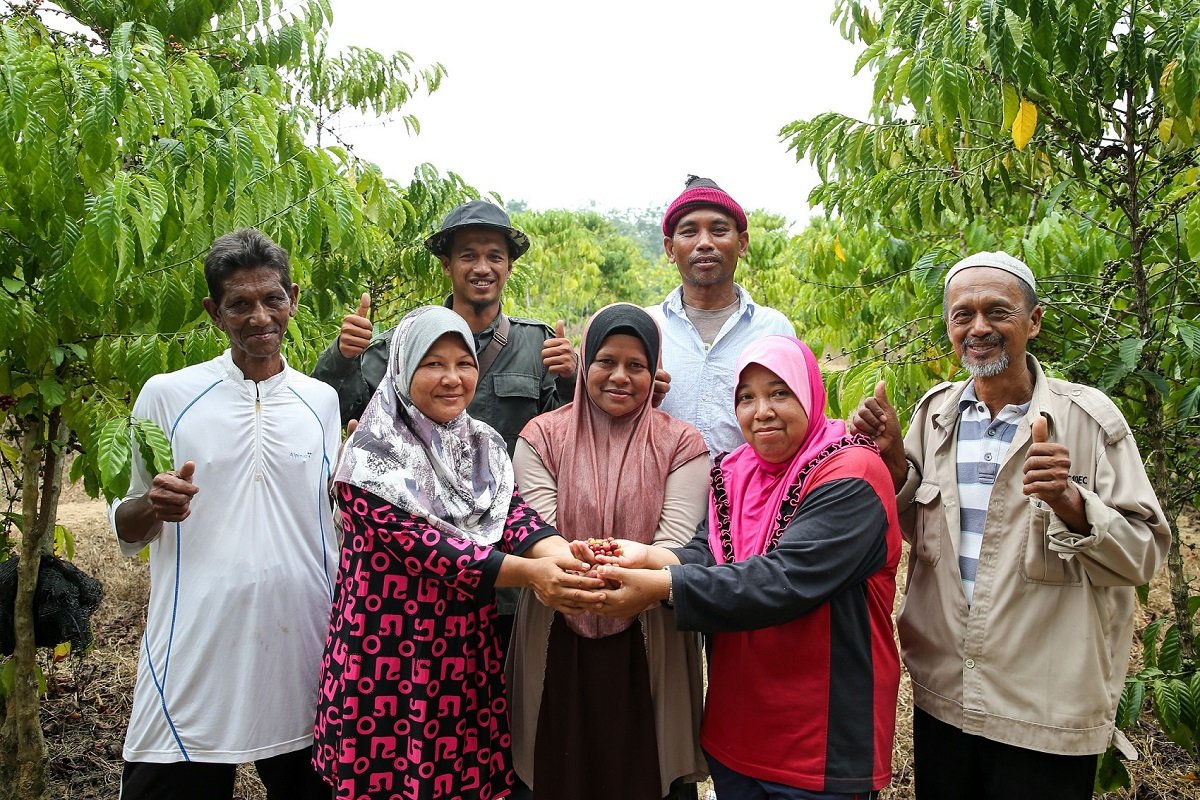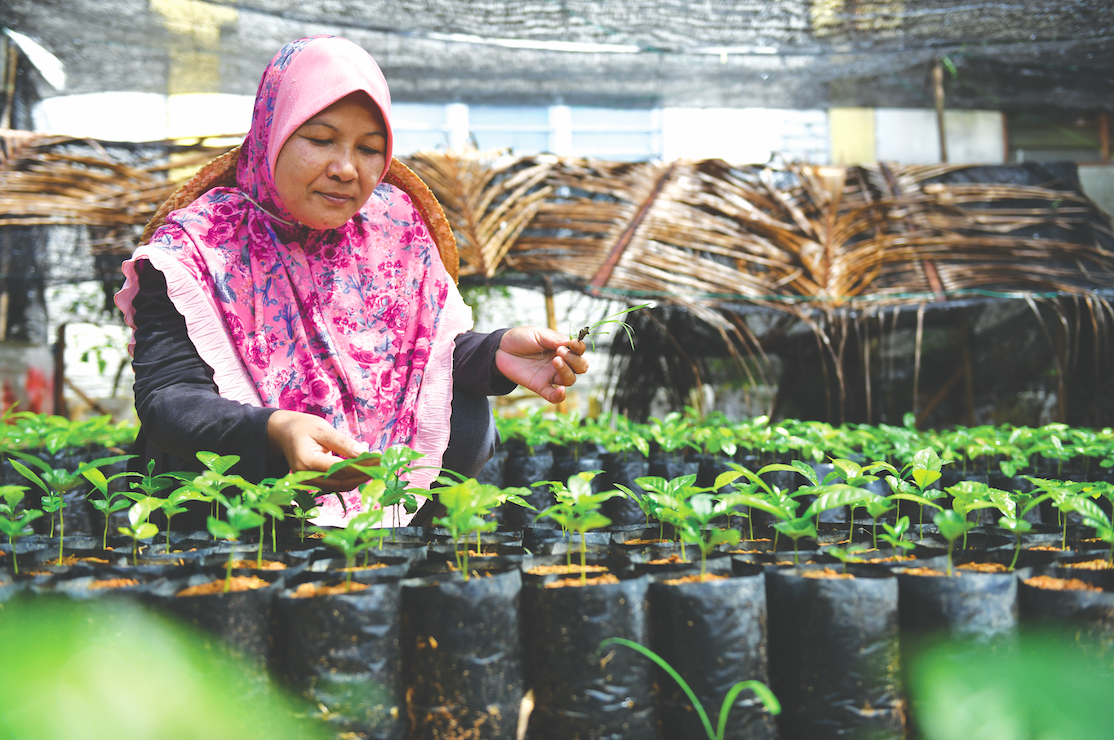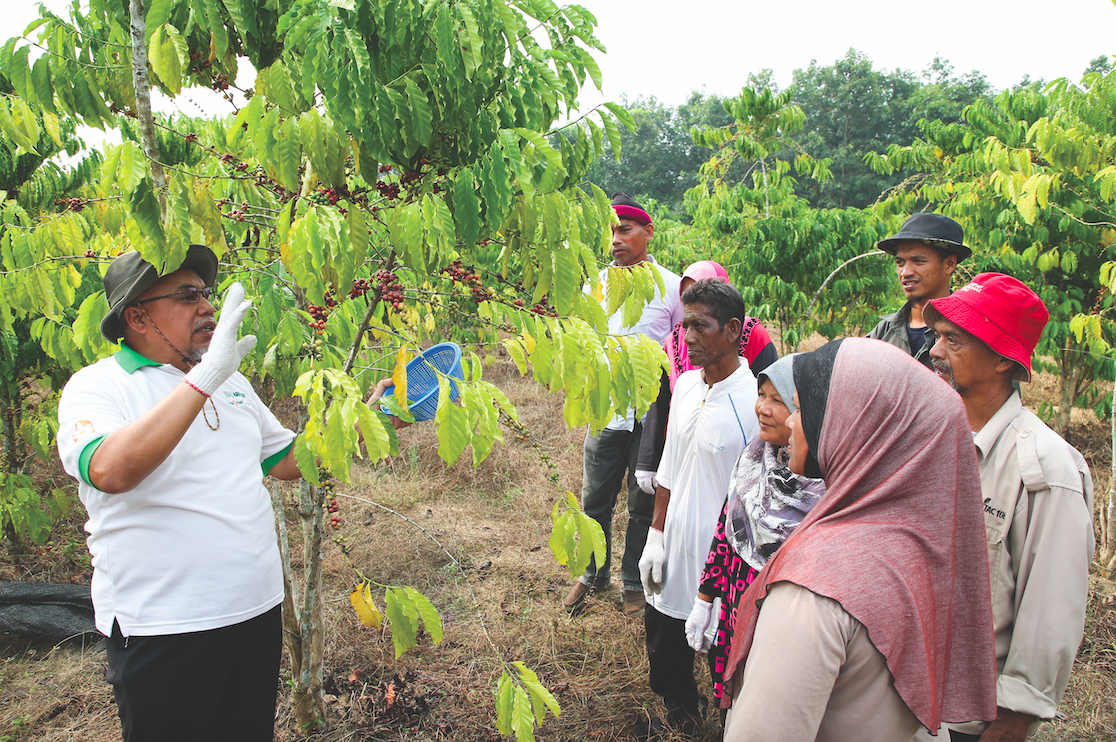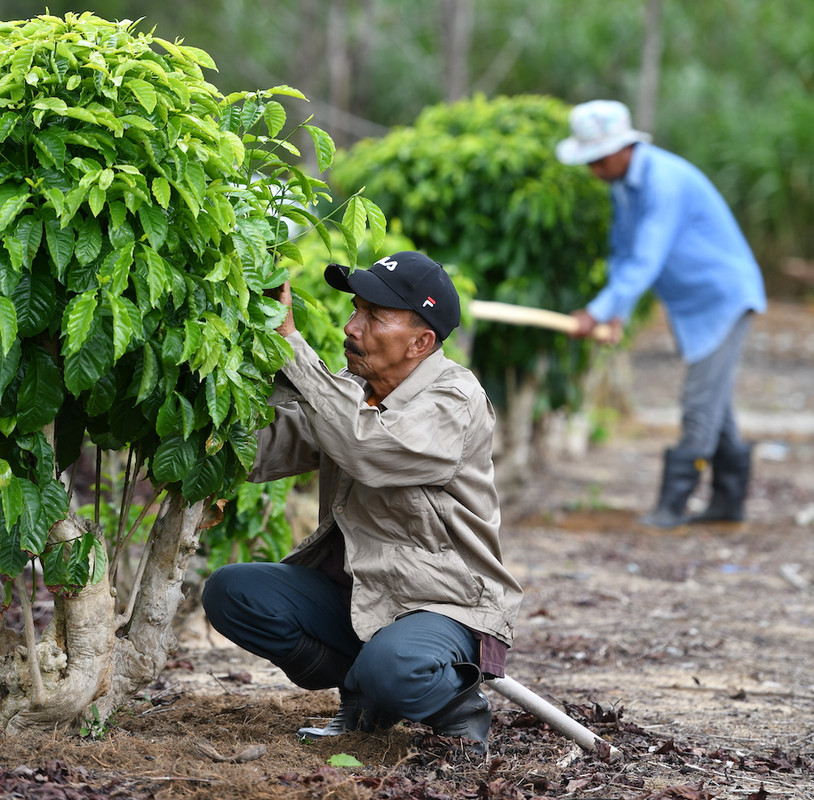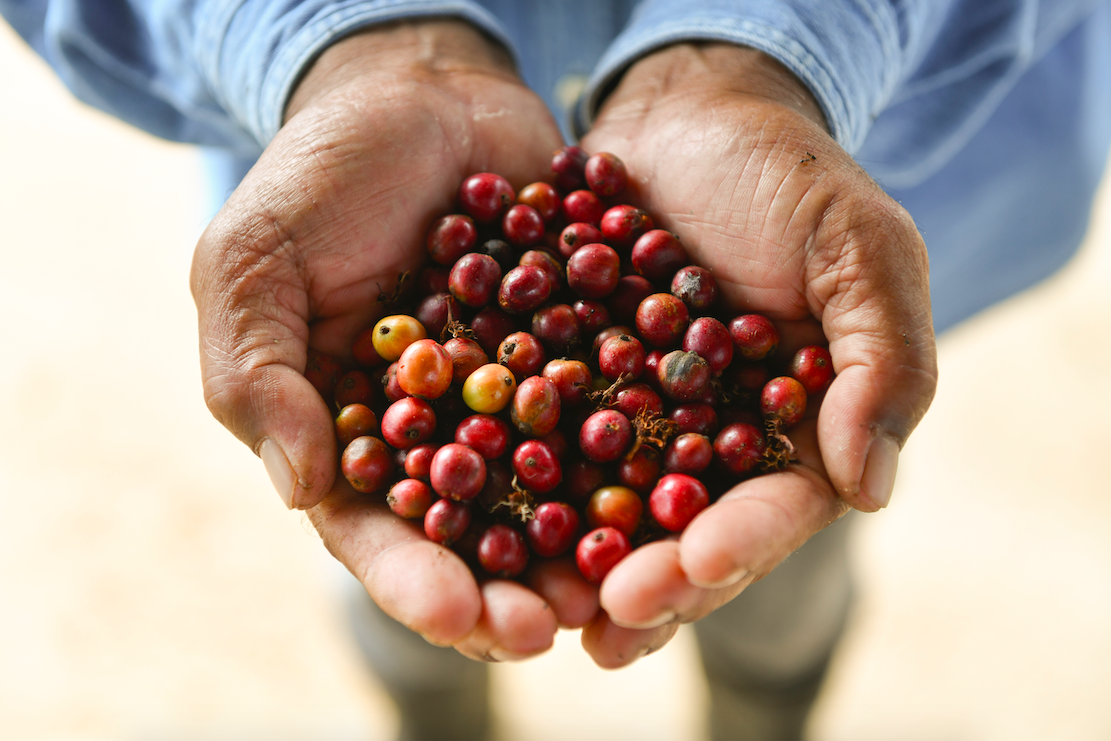Did You Know We Have Coffee Farmers In Kedah? Here's What A Day In Their Lives Looks Like
"I'll usually start my mornings at the coffee farm, then head over to the durian or rambutan orchard in the afternoon."
If you haven't heard yet, NESCAFÉ Classic Kopi Kedah is the latest trending coffee in town. What makes it unique is that it's made using 100% homegrown coffee beans from Kedah, woohoo! :DD
In 2019, NESCAFÉ launched their Grown Respectfully programme in Kedah to drive sustainability and enhance the lives of coffee farmers. To date, 100 farmers have been trained and 70,000 coffee seedlings have been planted, while a collection centre has also been established for future harvests.
But the most remarkable thing is that NESCAFÉ has come up with NESCAFÉ Classic Kopi Kedah, the first 100% homegrown coffee made with local beans, just within one year of the programme.
Watch the video below to find out more about NESCAFÉ Classic Kopi Kedah:
To learn what it's like to grow coffee, we interviewed two Kedah coffee farmers, who are both part of the Grown Respectfully programme
Meet Che Nai Bin Hassan and Abdul Razak Bin Jaarif. :)
65-year-old Che Nai has been a coffee farmer for over 20 years and owns a coffee farm in Kampung Charuk Tualang. 59-year-old Abdul Razak Bin Jaarif, is a close friend and fellow coffee farmer, and has been planting coffee for over 18 years.
1. Most coffee farmers also plant other crops, like rubber trees, chillies, and fruits. Some of them also own paddy fields.
Besides taking care of a five-acre coffee farm with 2,500 robusta coffee trees, Che Nai has paddy fields, rubber tree plantations, and fruit orchards that he tends to on a daily basis. Similarly, Abdul Razak also owns chilli farms and paddy fields, in addition to his four-acre coffee farm in Kampung Charuk Tualang.
One of the reasons why coffee farmers grow other crops is because coffee trees bear fruit only once a year. Having a diverse range of crops allows them to earn more income all year long.
2. Coffee farmers usually begin their days early, because they have various tasks to complete every day
"I'll usually start my mornings at the coffee farm, then head over to the durian or rambutan orchard in the afternoon," said Che Nai.
For Che Nai, a typical day starts around 7am or 8am at his coffee farm. Depending on the season, there will be different types of work to be done, from weeding and pruning, to fertilising and checking for pest damage. After lunch, the 65-year-old farmer visits his fruit orchards to take care of his other crops.
Abdul Razak, on the other hand, spends a lot of his time with other coffee farmers at the coffee nursery.
Almost every afternoon, he is found at the three-acre mother plant nursery in Sik, Kedah, taking care of the coffee seedlings central to the Grown Respectfully programme.
"We are grateful to Nestlé for providing us over 70,000 coffee seedlings, and teaching us wedge grafting techniques and methods to rejuvenate old coffee trees. Thanks to them, our crops have yielded more fruit, and it has helped to raise our income," shared Abdul Razak.
3. Being a coffee farmer comes with its fair share of challenges, especially during harvesting and rainy seasons
Abdul Razak (far left) explaining about the coffee fruits to other farmers.
Image via NESCAFÉ Malaysia"Our biggest challenge every year is harvesting season, because ripe coffee cherries will spoil in a week if not harvested," Abdul Razak said.
According to both farmers, finding manpower during coffee harvesting season is always a struggle. All the harvesting is done by hand, and it's not easy or cheap to hire extra workers. That's why they tend to end up getting friends, neighbours, and people from the kampung to help out with harvesting.
After the coffee cherries are harvested, they need to be dried. However, the rainy season can also be unpredictable and end up delaying the drying process.
To Che Nai, life as a coffee farmer is "sometimes easy, sometimes hard".
"Being a farmer can sometimes be a tough job. During coffee harvesting season, we spend five to six hours under the hot sun every day," said the 65-year-old coffee farmer.
"It takes one year for seedlings to go from nursery to coffee farm. We usually plant these small coffee trees in April or May, and it'll take two full years for them to bear fruit. December or January is when the trees start to flower, and June or July is when the fruits are finally ready for harvesting," explained Abdul Razak.
Nevertheless, both farmers agreed that it's fulfilling to see the fruit of their labour
Che Nai and Abdul Razak are tremendously thankful for the Grown Respectfully programme, because it has not only given them training, but also provided them a sense of accomplishment thanks to the recently launched NESCAFÉ Classic Kopi Kedah.
According to the farmers, they usually sell their coffee beans to Nestlé through an agent in the village. However, most of the time, they won't have any idea where their coffee beans end up. With NESCAFÉ Classic Kopi Kedah, it allows them to directly see and taste the fruit of their labour.
"It's kind of refreshing to see all our hard work in growing and harvesting coffee result in something that people can enjoy! To me, NESCAFÉ Classic Kopi Kedah is more than just another cup of coffee - you can really taste the respect and loving care from all the coffee farmers in Kedah," shared Abdul Razak.
It comes as no surprise that both coffee farmers love drinking coffee, and drink at least three cups a day ;)
"I like my coffee really strong, with just a bit of milk," said Che Nai.
"I don't really have a preference - black, with sugar, with milk, anything goes. But for me, a good cup of coffee needs to have that nice aroma and distinct taste. And of course, three cups a day. Minimum!" chimed Abdul Razak.
For Che Nai and Abdul Razak, NESCAFÉ Grown Respectfully has helped them to improve their crops and livelihoods
As part of NESCAFÉ's global commitment to ensure that 100% of their coffee beans are responsibly sourced and sustainably certified by 2025, NESCAFÉ Grown Respectfully was launched in 2019 in Malaysia. This marks Nestlé Malaysia's third Farmer Connect local project after Nestlé Chilli Club and Nestlé Paddy Club.
The programme supports farmers at every stage of the coffee farming process. Through Grown Respectfully, local farmers learn agricultural best practices, how to increase productivity, how to optimise costs, and how to improve the quality of their coffee beans.
Not only does this help farmers enhance their livelihoods, it also improves Nestlé’s sustainable coffee supply chain. Every coffee bean harvested needs to meet Nestlé's stringent quality requirements to be purchased for the production of Nescafé coffee products.
Ultimately, NESCAFÉ Grown Respectfully hopes to promote the local coffee sector, while ensuring a sustainable future for coffee farming in Malaysia.
Want to support local farmers and have a taste of Kedah's coffee? You can now buy NESCAFÉ Classic Kopi Kedah from local supermarkets and online platforms like Shopee.
What's unique about NESCAFÉ Classic Kopi Kedah is that it's the first 100% homegrown coffee, grown and harvested in Kedah. Each cup of coffee promises to fill the air with a whiff of fragrant aroma, while providing a smooth and authentic taste. For a limited time only, you can also get NESCAFÉ Classic Kopi Kedah in a traditional batik aluminium collectible tin can.
For more information about the NESCAFÉ Grown Respectfully programme, head over to their website today
